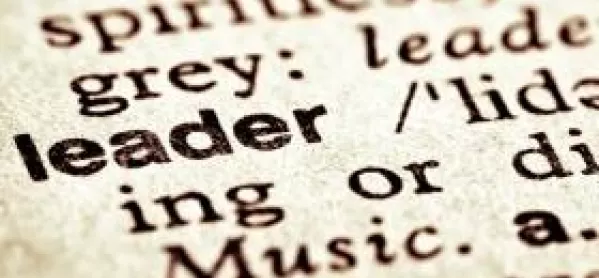Private sector staff shun shot at the top job

The once charmed task of leading a private school has become so marred by red tape that the sector could end up facing its own headteacher recruitment crisis, a new report suggests.
The study found that 44 per cent of independent school heads and a quarter of senior managers are set to retire or leave the profession in the next five years, but there could be a shortage of staff willing to step into their well-heeled shoes.
The study revealed that the image of the autocratic “master” relaxing with a pipe in his wood-panelled office could be long dead, as teachers claim it has become a “thankless task” ruined by over-regulation.
The survey of more than 4,000 teachers, the first of its kind by the Independent Schools Council (ISC), showed that just 31 per cent of senior managers were contemplating headship, despite the often high salaries and perks offered.
The findings reflect problems in the state sector, which has been attempting to defuse a succession planning timebomb for several years.
Rudolf Eliott Lockhart, head of research and intelligence at the ISC, which represents half of the country’s 2,500 independent schools, wrote in his report: “When asked, they tended to cite the fact that they enjoyed classroom teaching and had no desire for the hassle that would come with a headship.
“It is sad to read that spiralling bureaucracy and over-regulation might be putting talented people off applying for the top jobs in schools.”
Bernard Trafford, vice chair of the Headmasters’ and Headmistresses’ Conference of elite private schools, said: “I don’t see senior staff bursting to move up to headship, but I do hear quite often, `I’ll let someone else carry the can. I was inspected in February under the new framework and the paperwork was colossal and powerfully demotivating.”
He said parents had also become more demanding and litigious and society had become more complaints oriented. Parents were also less likely to support schools on disciplinary matters, he said.
“But we wouldn’t really want to go back to the days of the hugely autocratic head, untroubled by criticism or challenge,” he added.
As well as highlighting recruitment concerns, the study also provided the first in-depth glimpse of the qualifications and experience of teachers in private schools.
The council carried out the research to counteract suggestions that teachers in private schools are not as well-qualified as in state schools, because Qualified Teacher Status is not a pre-requisite to work.
The survey found 90 per cent of private school teachers had a teaching qualification of some kind, and 59 per cent had the PGCE.
In key subjects, teachers are particularly highly qualified, with three- quarters of sixth-form physics teachers holding a degree in physics, compared to around 30 per cent in the the state sector. Nearly one in five sixth-form chemistry teachers hold doctorates.
The survey also revealed extensive levels of experience among its teachers, both inside and outside the classroom, with the average teacher having served 17 years.
A third of teachers had followed careers prior to teaching, with the largest numbers coming from finance, research, the armed forces, civil service and engineering.
The report said: “It is abundantly clear that despite teaching qualifications not being mandatory within the sector, a very high level of qualification is certainly the norm.”
ISC credentials- 88 per cent - proportion of teachers with an undergraduate degree
- 54 per cent - proportion of teachers with a 2:1 degree or higher
- 19 per cent - proportion of teachers entering profession in last five years holding a first-class degree
The state of independent schools
New findings by the Independent Schools Council (ISC) show that the majority of teachers in private schools were themselves educated entirely in the state sector.
The survey of more than 4,000 teachers found 51 per cent of teachers went to state schools, while 23 per cent had been entirely educated in private schools.
Among male teachers, this figure rose to 30 per cent.
Teachers in private schools were also likely to have had experience working in state schools, and the average teacher had served five years in state schools and 12 years in the private sector.
The top reasons given by teachers for teaching in private schools were smaller class sizes, behaviour and “school ethos”.
Other attractions included the more academic approach and more opportunity for extra-curricular involvement.
- 88 per cent - proportion of teachers with an undergraduate degree
- 54 per cent - proportion of teachers with a 2:1 degree or higher
- 19 per cent - proportion of teachers entering profession in last five years holding a first-class degree
The state of independent schools
New findings by the Independent Schools Council (ISC) show that the majority of teachers in private schools were themselves educated entirely in the state sector.
The survey of more than 4,000 teachers found 51 per cent of teachers went to state schools, while 23 per cent had been entirely educated in private schools.
Among male teachers, this figure rose to 30 per cent.
Teachers in private schools were also likely to have had experience working in state schools, and the average teacher had served five years in state schools and 12 years in the private sector.
The top reasons given by teachers for teaching in private schools were smaller class sizes, behaviour and “school ethos”.
Other attractions included the more academic approach and more opportunity for extra-curricular involvement.
Keep reading for just £1 per month
You've reached your limit of free articles this month. Subscribe for £1 per month for three months and get:
- Unlimited access to all Tes magazine content
- Exclusive subscriber-only stories
- Award-winning email newsletters



